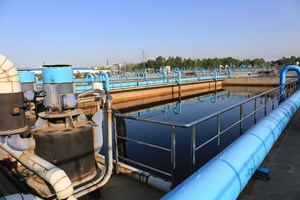Bill on Thresholds for Chemicals in Drinking Water Advances
(AP) — The state Senate approved legislation on May 20 directing Delaware health and environmental officials to establish maximum contaminant levels in drinking water for certain manmade chemical compounds that have been associated with cancer and other health problems.
The bill passed the Senate unanimously and now goes back to House. House lawmakers voted unanimously for the measure last month but must approve a Senate amendment that removed certain language.
The measure directs state agencies to set maximum allowable levels for fluorinated chemicals known as PFOA and PFOS in public drinking water supplies and to conduct a statewide survey of other fluorinated compounds in drinking water.
PFOA and PFOS have been found in public and private water supply wells in all three counties, most notably in an area surrounding the New Castle County Airport. The chemicals have been used for decades in a wide variety of manufacturing and industrial operations and consumer products, including outdoor and protective clothing, food packaging, carpet and nonstick cookware. PFOS has been an ingredient in firefighting foams commonly used at airports and military installations, such as the New Castle County Airport, the adjacent Delaware Air National Guard installation and Dover Air Force Base.
PFOA and PFOS are only two of hundreds of synthetic chemicals known as PFAS, which have been associated with health effects including high cholesterol levels, thyroid disease, certain cancers and pregnancy-related problems. They often are referred to as “forever chemicals” because they do not easily degrade and can remain in the body for years, even decades.
While the U.S. Environmental Protection Agency has taken initial steps to begin regulating PFOA and PFOS in drinking water, some states are not waiting. A handful have already set their own maximum contaminant levels for the two compounds.
The Delaware bill calls for officials to hold public hearings on the proposed regulations within nine months of the effective date of the legislation if it’s signed into law.
Related News
From Archive

- Glenfarne Alaska LNG targets late-2026 construction start for 807-mile pipeline project
- U.S. water reuse boom to fuel $47 billion in infrastructure spending through 2035
- $2.3 billion approved to construct 236-mile Texas-to-Gulf gas pipeline
- Major water pipe break in Puerto Rico hits over 165,000 customers
- Potomac River Tunnel project enters construction phase beneath Washington, D.C.
- Pennsylvania American Water launches interactive map to identify, replace lead water service lines
- Trump's tariffs drive $33 million cost increase for Cincinnati sewer project
- Utah city launches historic $70 million tunnel project using box jacking under active rail line
- Tulsa residents warned after sewer lines damaged by boring work
- Fatal trench collapse halts sewer construction in Massachusetts; two workers hospitalized




Comments